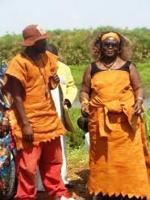Mzumbe University Tanzania
Are you looking for information about Mzumbe University Tanzania, Courses and Programmes offered at Mzumbe University, Hostels and accommodation at Mzumbe University, Fee structures and Loans, Admission Form Requirements? Here are the details about this university and all you need to know about this University In Tanzania
Establishment of Mzumbe University
Mzumbe University was established in December 2006 in accordance with section 4(1) of the Mzumbe Charter of 2007.
The University is the successor to the Mzumbe University established by the Mzumbe University Act. No. 9 of 2001, which was repealed by the Universities Act. No. 7 of 2005.
Mission of Mzumbe University
The Mission of the University is to provide opportunities for acquisition, development, preservation and dissemination of knowledge and skills through training, research, technical and professional services.
Vision of Mzumbe University
Mzumbe University is to be a center of excellence in management science for knowledge acquisition and adaptation through training research, consultancy, public service and outreach activities in Africa and beyond by the year 2015.
Schools, Faculties, Directorates and Institutes of Mzumbe University
Schools
Business School
This consists of the following three Departments:
(1) Department of Accountancy and Finance (DAF.)
(2) Department of Business Administration (DBA)
(3) Department of Procurement and Logistics Management (DPLM)
(4) Entrepreneurship Development Centre (EDC)
School of Public Administration and Management
This consists of the following three Departments:
(1) Department of Public Service and Human Resource Management
(2) Department of Health Service Management
(3) Department of Local Government Management
Faculties
Faculty of Science and Technology
This consists of the following three Departments:
(1) Department of Quantitative Methods
(2) Department of Production and Operations Management
(3) Department of Information and Communication Technology.
Faculty of Law
This consists of the following four Departments:
(1) Department of Criminal and Civil Law
(2) Department of Economic Law
(3) Department of Constitutional and Administrative Law
(4) Department of International Law
Faculty of Social Sciences
This consists of the following five Departments:
(1) Department of Economics
(2) Department of Languages and Communication Studies
(3) Department of Educational Foundations and Teaching Management
(4) Department of Community Development and Social Work
(5) Centre for Population Studies
Institutes
Institute of Development Studies
This comprises the following four Departments:
(1) Department of Development Policy
(2) Centre for Environment, Poverty and Sustainable Development
(3) Centre for Gender Development
(4) Centre for Rural Development
Institute of Continuing Education
This comprises the following four Departments:
(1) Department of Extension Services
(2) Centre for Advocacy, Human and Civil Rights Services
(3) Centre for Part-time Distance Education
(4) Entrepreneurial Development Centre
Directorates
Directorate of Research, Publications and Post Graduate Studies
This comprises of the following three Departments:
(1) Department of Research and Publications
(2) Department of Postgraduate Studies
(3) Department of Field Studies
Directorate of External Linkages and Commuity Engagement
This comprises the following four Departments:
(1) Department of Short Courses and Consultancy
(2) Department of Collaborations, Marketing & Outreach Services
(3) Department of Teaching Skills and Distance Learning
(4) Department of Lumumba Operations
Directorate of Library and Technical Services
This comprises the following three Departments:
(1) Department of Reader Services
(2) Department of Library and Technical Services
(3) Department of Library Science & Information Management.
Directorate of Information and Communication Technology
This comprises the following three Departments:
(1) Department of Maintenance and Technical Services
(2) Department of Software Development and Application
(3) Department of Systems Management.
......THE STRUCTURE OF MZUMBE UNIVERSITY PROGRAMMES
Semester and Quarter System
The undergraduate, Diploma and Certificate programmes are based on a Semester system.
One academic year consists of two semesters, each of 17 weeks.
Graduate programmes are based on the quarter system. There are FIVE quarters each of 12weeks.
The first, second, third and fourth quarters are for coursework while the fifth quarter shall be for Research and Thesis writing.
The departments offer a series of prescribed courses to each programme. Each course is a complete unit. Course objectives are specified and all other relevant information is included in the course structures.
Some courses are common i.e. to be taken by students in several programmes.
Others are tailored to only one programme. Some programmes allow one elective course to be chosen from a menu in the last semester of study.
Mode of Teaching
All Mzumbe University courses are taught in plenary sessions combined with seminars each week.
The plenary sessions are mainly for “one-way” information from the lecturer to the students.
These groups, therefore, may consist of many students and from different programmes (in common course).
The seminar groups are small (approximately 30 students) and generally students are divided into seminars according to their programmes.
The seminars and plenary lectures are equally important.
The student-teacher relationship in the seminars is close and a variety of different learning methods are used.
Home assignments and tests for course work evaluation are usually conducted by the lecturer leading the seminar.
Mzumbe University students are responsible for their own learning.
Self studies and group discussions are considered as important as lectures and seminars.
For each course there will be an outline given to the students. The course outline is a plan for all plenary sessions and seminars in a particular course.
The course outline specifies the detailed timing and sequencing of each topic. The students are expected to prepare themselves and follow up with self studies on each topic.
Faculty members of the Mzumbe University are available on appointment for individual student counselling.
Students’ Workload and Credit Points
On average, a Degree, Diploma or Certificate Course student is expected to spend a total of 50 hours per week, for 15 weeks, on academic work.
This total weekly workload of 50 hours is set to 10 credit points (cp) per semester.
All courses offered in a semester have a total workload of 10 cp, and each course unit is assigned 2 cp weight reflecting the estimated work load.
The 2 cp weight includes plenary lectures, seminars as well as self studies, group work etc.
Bachelors Degree Programmes consist of 6 semesters, each of 10 cp.
This requires the students to complete a total of 60 credit points (including the field project) in the course of three years.
Certificate Programmes consist of 2 semesters, each of 10 cp. This requires the students to complete a total of 20 credit points during the one year.
(Certificate in Law students are required to clear 25 cp to cover the Field Attachment).
For Diploma in Law the total number of credit points is 47. 10 cp are granted each of the four semesters and 7 cp cover the Field Attachment between the two years of study.
Workload and Credit Points for Graduate Students
The workload and evaluation of the Graduate students is based on the quarter system.
The quarter, consisting of 10 weeks of class work, is set for rigorous professional training and subsequent evaluation takes place.
Each course unit in a quarter is given 2 credit points and carries 100%.
A graduate student is expected to spend a total of 60 hours a week on academic work.
This total weekly workload is set to 8 credit points per quarter.
Total course work for graduate students covers 4 quarters totaling 32 credit points.
Thesis work must be completed by students in the period of thirteen weeks.
In this period the student will prepare a research proposal and undertake field research leading to the thesis writing.
In the event a student is unable to complete his work in the prescribed period, a written permission must be sought by the student for time extension to complete the work.
The period of the extension is at the discretion of management of the university. In any case the time extended shall not exceed three years from the date of registration.
Graduate Students’ Field Work
Graduate Students go for their Field Research Project in the fifth quarter of the academic year.
The field research project carries an equivalent of eight (8) course units, i.e. 16 credit points and is equivalent to 100%.
The student must score an equivalent of 50% for the thesis to be admissible for Graduation.
Field Attachment and Term Paper Writing
The field attachment for Mzumbe University Undergraduate Students is meant to provide a practical element in the study programmes.
In their field attachment period, students are placed in organisations and given an opportunity to practice some of the theoretical concepts learned in classroom.
The field attachment is integrated into the programme and allocated one full semester of study (20 weeks).
Before students go to the field, they use part of their fourth semester to prepare a field study programme in the form of a project proposal.
The various departments are responsible for helping the students to plan and carry out their projects.
Each student is therefore attached to a Professor or Lecturer who will supervise the student throughout the various phases of the project.
Students can work in a field project individually or as a group. A field project carries a full 10 credit points as per one semester.
In cooperation with the organisation/institution, the student is also given a field supervisor from the organisation/institution.
The field project is evaluated in three phases. The field supervisor sends a confidential report to the respective Dean or Institute Director rating the student on scale of 0 to 20.
The Mzumbe University Research Supervisor evaluates the student on a scale of 0 - 20 basing on two of the field supervision visits and finally the Field Report paper is evaluated on a scale of 0 - 60.
Total possible score is 100%. The Field Report paper is evaluated only if the student has passed the field supervisions evaluation.

Other Universities and Colleges in Tanzania
Makumira University College Tanzania › | Mwenge University College of Education Tanzania › | Mzumbe University Tanzania › | St. Johns University of Tanzania › | Sokoine University of Agriculture › | University of Dar es Salaam › | University of Arusha Tanzania › | Zanzibar University Tanzania › | Tumaini University Dar es Salaam › | State University of Zanzibar Tanzania › | Stefano Moshi University College Tanzania › | Kabianga University College › |Recent Articles
-
Garam Masala Appetizers ,How to Make Garam Masala,Kenya Cuisines
Sep 21, 14 03:38 PM
Garam Masala Appetizers are originally Indian food but of recent, many Kenyans use it. Therefore, on this site, we will guide you on how to make it easily. -
The Details of the Baruuli-Banyara People and their Culture in Uganda
Sep 03, 14 12:32 AM
The Baruuli-Banyala are a people of Central Uganda who generally live near the Nile River-Lake Kyoga basin. -
Guide to Nubi People and their Culture in Kenya and Uganda
Sep 03, 14 12:24 AM
The Nubians consist of seven non-Arab Muslim tribes which originated in the Nubia region, an area between Aswan in southern







New! Comments
Have your say about what you just read! Leave me a comment in the box below.